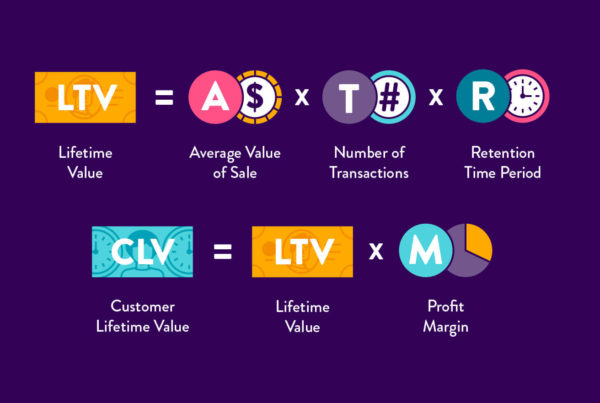You just got a new job and you are so excited about it, right?
In the midst of the excitement you also feel anxious, thinking about how you are going to settle well in the job.
Getting a job is one thing and the ability to settle, excel and adapt in the new job is another thing.
For you to be able to settle well and excel in your new job, you need a good plan. You need both short term and long term plans.
For this reason, a 30, 60, and 90 days’ plan is recommended.
This plan will help you outline everything you need to do at every given stage of your new job.
It will help you organize and prioritize your time, tasks and strategies on how to master your role and responsibilities in your new job.
This plan will help you to excel in your new job. This plan will help you in your step-by-step advancement and performance in your job.
What is a good 30 60 90 day plan?
A good 30-60-90 day plan is a layout course of action for a new employee through the first 30, 60, and 90 days period.
This is the layout plan of actions to attain a specific goal, which is to meet up with the company’s goals and expectations.
The layout course of actions for the first 30 days is different from the next 30 days and the subsequent 30 days.
As a new employee, it is expected of you to have a layout plan on how you are going to prioritize your tasks, strategize and achieve results.
Even during an interview, you may be asked by the interviewer to provide a layout plan of your vision and goals for the company.
Your interviewer may want to know if you actually have goals and vision for the growth of the company.
You can stand out of the rest candidates by providing a well laid out plan on how you are going to improve from one stage to another.
The things you are going to do at the 30-day stage, 60-day stage and the 90-day stage.
All these well laid out plans will give the interviewer a good idea that you actually know what you want to do and how to achieve them.
To be able to know exactly what you want to do, there are some vital things you first need to know.The vital questions you should ask yourself include:
What is the company goals and vision?
As a new employee in a company, the foremost important things you need to know is to know the goals and vision of the company.
You need to know what the company is all about, their product and services. You need to know the company’s competitors.
The goals and vision of the company will give you a better idea of what plans you need to make in order to help the company achieve them.
You need to know your team goals
As a new employee, you will be working with a team. You need to know the goals of your team.
You need to understand the purpose behind your team’s goals, what they want to achieve.
You also need to know how your team plan on achieving those goals.
All these will give you a good idea on what you need to do as an individual to help the team achieve those goals.
What are your goals?
Now you have a good idea of your company goals and vision, your team goals. The next thing is for you to know your goal.
You need to know your responsibilities and tasks. Your responsibilities and tasks will help you achieve your goals.
After you have set a target for yourself, you need to map out strategies on how you are going to meet those targets.
Your mapped out strategies will help you in achieving your goals, your team goals and the company goals.
These mapped out plans and strategies will make you be practically involved in the success of your team and the company in general.
To achieve your goals, you need to differentiate each goal accordingly. Your goals should be differentiated into three types name; Learning, Performance, Initiative and Personal goals.
- Learning goals are how much information you are able to get about your company and team, and how you are able to assimilate the information.
- Performance goals are what you should be able to do after a particular time frame. After the learning phase, the next thing expected of you is your performance.
- Initiative goals are your initiative and things you will do to stand out.
- Personal goals are how you are going to integrate yourself with your team and company so as to know them better.
These different goals will help you know exactly what you need to do, when and how to achieve them. It reduces the time you spend on different tasks and make you more productive.
What you should do on the first 30 days of a new job
The first 30 days in a new job is a very critical stage. As a new employee in a new company, you must first feel like a stranger.
This is because you don’t know anybody there, you don’t know the company’s mode of operation and so many other things.
The mistake some newest employees make is that they want to make an impression in a new job.
They make suggestions even when they don’t have a good idea of the team’s work or the company’s mode of operation.
They go straight into their work without making sufficient inquiries and research about the job.
They have no idea of the company’s goals and vision. They are not experienced and have no adequate knowledge of what they should do.
All these are grievous mistakes that can hinder the progress and career success of an employee.
Having an in-depth understanding of the company and your team goals and vision will greatly help you in achieving your own personal goals.
This will help you to be more productive and create a lasting impact on the company.
Without adequate information, you are bound to make mistakes. This is why you need a detailed understanding of your company and your team goals.
You need to know your role in the team and how to make a success of the team. In getting all the information, you need to be patient.
The first 30 days is the stage to gather as much information as possible. It is the stage where you need to learn more about the company and about your team.
At this first stage, you need to ask questions more than providing answers. Get as more information as you can.
Have an in-depth understanding of how the company operates. All this information is needed so that you will be very prepared for the task ahead.
In this first stage, you need to create different goals for yourself. You need to create your learning goals, performance goal, initiative goals and personal goals.
Your Learning Goals should be;
- Learn about my company’s mission and vision.
- Learn about my company’s code of conduct
- Learn about target audiences, customers and how the company’s product benefits the customers.
- Learn about my company’s competitors and how to stand out.
- Learn about my team goals and how to achieve those goals.
- Meet with my team leader to learn about how to achieve those goals.
- Meet with company manager to learn about his/her expectations from me and the team.
Your Performance Goals should be;
- Have a detailed knowledge about the company vision and team goals.
- Complete the training process and pass excellently.
Your Initiative Goals should be;
- Contribute in the team and suggest ways to achieve team goals.
- Be proactive.
Your Personal goals should be;
- Meet up with team members to know them better.
The Second 30 days’ plan on the Job (60 days)
After the first 30 days, the next 30 days should be more productive. You should be more involved in activities.
At this stage, you don’t need to ask so many questions anymore. This is the stage where you need to learn and know things on your own.
Attend meetings and be active in meetings. Contribute your ideas in a unique way. You are new in the company, provide new strategies and new ideas that will impress your team members.
Do not be afraid to speak out and contribute to discussions. Be able to talk as much as you listen in meetings.
Your goals at this stage should also be differentiated.
Your Learning goals should be;
- Review the efficiency of company procedures and progress.
- Meeting with supervisor to get feedback.
- Study best practices in the industry.
- Setting goals for the next stage.
- Identifying potential mentors.
Your Performance goals should be;
- Complete the training process.
- Have a good knowledge of your roles and how to practically do your job.
Your Initiative goals should be;
- Share ideas and strategies in meetings.
- Suggest ideas to team leader and manager.
Your Personal goals should be;
- Building relationships with colleagues.
- Visiting other departments to meet with other teams.
The Third 30 days’ plan on the Job (90 days)
After 60 days on the job, you are no longer new to the job and you are no longer new in the company. You are expecting to produce results.
You should have a very good knowledge of your job description, your roles and abilities.
At this stage, you should be able to provide solutions to problems. You should be able to give answers to questions. Now you are to be teaching other people and not taught anymore.
At this stage, you need to be very confident in what you know. You should be able to lead team and spearhead tasks. You should be able to handle projects.
Your goals at this stage should be;
Your learning goals;
- Do analysis of my performance.
- Ask my team leader or manager to rate my performance.
Your performance goals;
- Have a good knowledge of my job roles.
- Provide solutions to problems.
- Spearhead task and projects.
Initiative goals;
- Collaborate with other teams from other departments.
- Assist my colleagues and customers wherever needed.
Personal Goals;
- Join colleagues in clubs.
- Go for seminars and boot camps.
What is the first 90 days of a new job called?
As a new employee in a company, you need to go through some scrutiny before you will be retained permanently. This scrutiny period takes a time range of 90 days.
The first 90 days of a new job is called the Orientation and Evaluation period. It is also called the Trial period.
During this period, the new employee evaluates the job and determines if the job meets his or her expectations.
The supervisor or manager also evaluates the new employee and determines if the employee meets the expectations of the company.
The supervisor or manager determines if the employee meets the company standard by evaluating his or her knowledge, skills and other criteria to meet the satisfactory performance standard.
The orientation and evaluation period of a new employee starts on the first day he or she starts the job and ends on the 90th day.
The performance of the new employee in this 90-day period will determine if the employee will be retained or not.
As a new employee, your most critical time in a new job is the first 90 days. It is the time when you need to show the company why you should be retained.
During this time, you have not been made a full staff of the company. It is a trial and a training period to know if you are actually qualified for the position.
After the 90 days’ period, if you meet the standard of the company, you will be retained permanently.



